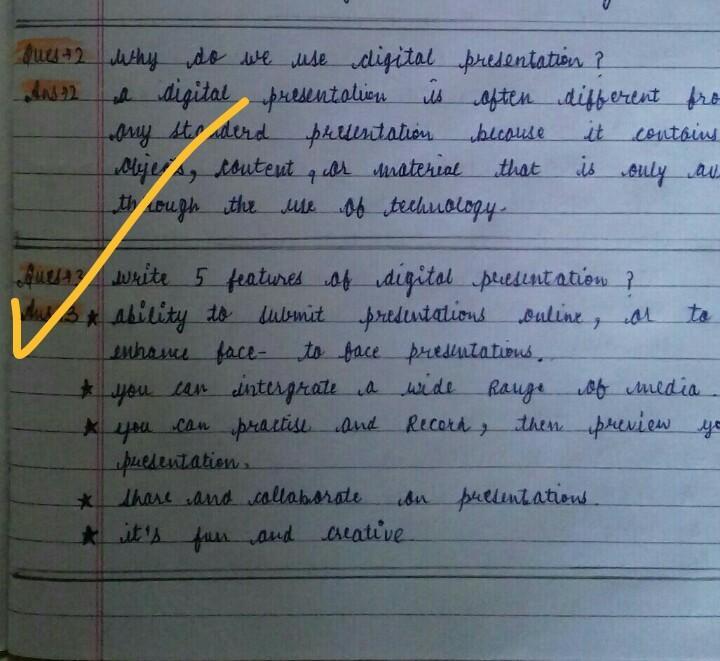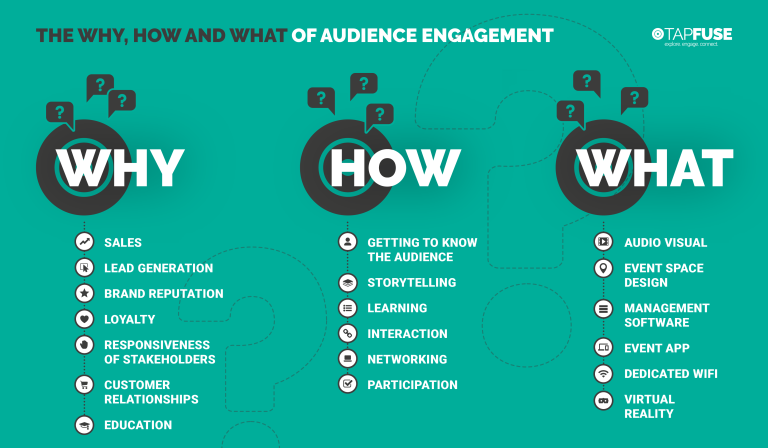Why Is Public Speaking So Scary?
Have you ever dreaded the thought of speaking in public? You’re not alone. Many people find public speaking incredibly scary and anxiety-inducing. But why is that? In this article, we’ll delve into the reasons why public speaking can be so intimidating, and explore some tips to help overcome those fears.
The fear of public speaking is a common phenomenon that affects people of all ages. It can be attributed to a range of factors, including the fear of being judged, the pressure to perform well, and the fear of making mistakes in front of a large audience. But what exactly makes public speaking so scary?
One reason is the fear of rejection. When we speak in public, we open ourselves up to the possibility of criticism and negative judgment from others. This fear of being evaluated by our peers can trigger feelings of self-doubt and performance anxiety, leading to a heightened sense of fear and nervousness.
Now that we have a better understanding of why public speaking can be so scary, let’s explore some effective strategies that can help you overcome your fears and become a confident public speaker. So, ready to conquer your fears and shine on stage? Let’s get started!
Public speaking is often considered scary due to a combination of factors. Firstly, it triggers a fear of judgment or embarrassment, as we worry about making mistakes in front of an audience. Additionally, the pressure to perform well adds to the anxiety. The fear of forgetting what to say and being unable to control nerves also contributes to the unease. However, with practice, preparation, and understanding that everyone experiences some degree of nervousness, it is possible to overcome the fear of public speaking.

Why is Public Speaking So Scary: Overcoming Fear and Unlocking Your Potential
In today’s highly connected and digital world, effective communication skills are more important than ever. Among these skills, public speaking stands out as a crucial ability to have, whether it’s presenting in front of a large audience, pitching an idea to potential investors, or simply expressing yourself confidently in social situations. However, for many people, the thought of public speaking can be terrifying. So, why is public speaking so scary? In this article, we will explore the underlying reasons behind this fear, the impact it can have on individuals, and strategies to overcome it.
Understanding the Fear: The Evolutionary Perspective
Public speaking, for most individuals, triggers the fear response in the brain. From an evolutionary standpoint, this fear can be traced back to our ancestors’ need for protection in social settings. In the past, being rejected or humiliated by a group could have had severe consequences, including being ostracized or even physically harmed. This fear has been wired into our brains as a survival mechanism. The anticipation of judgment or criticism from others activates the fight-or-flight response, leading to symptoms like trembling, sweating, and elevated heart rate.
However, in today’s society, the physical threats associated with public speaking are minimal. Yet, the fear persists due to our deeply ingrained fear of social rejection. We crave acceptance from others, and the fear of being judged or criticized can cause anxiety and self-doubt. This fear can also be fueled by the fear of failure, perfectionism, and the pressure to meet high expectations. Acknowledging the evolutionary roots of this fear can help us understand why it feels so overwhelming.
The Impact of Public Speaking Fear: Personal and Professional Consequences
The fear of public speaking can have a significant impact on both personal and professional lives. On a personal level, it can lead to missed opportunities for self-expression, decreased self-esteem, and limited social interactions. For example, individuals may avoid speaking up in meetings or decline leadership roles that involve public speaking, hindering their personal growth and potential.
Professionally, the fear of public speaking can limit career prospects and advancement. Many job roles require effective communication and presentation skills, and those who struggle with public speaking may find it challenging to succeed in these roles. Public speaking anxiety can also hinder networking opportunities, making it difficult to establish professional connections and build a strong personal brand. Overcoming this fear is crucial for professional growth and success in today’s competitive world.
Strategies to Overcome the Fear of Public Speaking
While the fear of public speaking may be deeply ingrained, it is possible to overcome it with the right strategies and approach. Here are some effective techniques to help you unlock your potential and become a confident public speaker:
1. Preparation: Thorough preparation is key to building confidence. Research your topic, practice your speech, and familiarize yourself with the venue and equipment. The more prepared you are, the more comfortable and confident you will feel.
2. Visualization and Positive Self-Talk: Visualize yourself successfully delivering your speech and receiving positive feedback. Practice positive self-talk, replacing negative thoughts with affirmations like “I am well-prepared and capable of delivering an engaging presentation.”
3. Breathing and Relaxation Techniques: Deep breathing exercises and relaxation techniques can help calm your nerves before and during a speech. Focus on slow, deep breaths to regulate your heart rate and induce a state of relaxation.
4. Gradual Exposure: Start by speaking in smaller, supportive groups before gradually expanding your audience. Join organizations or clubs where you can practice public speaking in a safe and encouraging environment.
5. Seek Feedback and Learn from Each Experience: Constructive feedback from trusted individuals can provide valuable insights and help you improve. Embrace each speaking opportunity as a chance to learn and grow, rather than focusing solely on perfection.
6. Professional Development Opportunities: Consider attending public speaking workshops or enrolling in courses to enhance your skills. These programs provide guidance, feedback, and opportunities to practice in a supportive environment.
7. Embrace Your Authenticity: Remember that everyone has their unique speaking style, and authenticity is key to connecting with an audience. Embrace your strengths, personality, and natural speaking style to deliver a genuine and impactful presentation.
By implementing these strategies and consistently challenging yourself, you can gradually overcome the fear of public speaking. Remember, public speaking skills are not innate; they can be learned and developed through practice and perseverance. Embrace the process, celebrate small victories, and watch as your confidence soars, unlocking your true potential as a public speaker.
The Power of Public Speaking: Benefits and Opportunities
Public speaking is a powerful tool that can open doors, empower individuals, and create impactful change. Once you conquer your fear, you’ll discover a world of benefits and opportunities that await you. In this section, we will explore the advantages of becoming a skilled public speaker and how it can positively impact various aspects of your life.
Personal Growth and Development
When you overcome the fear of public speaking, you embark on a journey of personal growth and development. You build confidence in expressing your thoughts and ideas, sharpen your critical thinking skills, and expand your knowledge in various areas. Public speaking allows you to become a more effective communicator, both in professional and personal settings. You gain the ability to articulate your viewpoints, engage with diverse audiences, and build connections with people from various backgrounds.
Public speaking also enhances your leadership abilities. As you develop your speaking skills, you become more proficient in motivating and inspiring others. Public speakers have the power to influence, educate, and create change within their communities. Whether it’s in educational institutions, corporate settings, or social advocacy, public speaking skills are crucial for those who aspire to make a positive impact in society.
Career Advancement and Professional Success
In today’s competitive job market, effective communication skills are highly valued by employers. Public speaking skills can give you a significant edge and open doors to exciting career opportunities. Employers seek individuals who can confidently deliver presentations, lead meetings, and represent their organizations with professionalism and charisma. By mastering the art of public speaking, you position yourself as a valuable asset in any workplace.
Public speaking skills also play a crucial role in professional networking. Whether attending conferences, industry events, or networking sessions, the ability to speak confidently and engage with others is essential for building professional relationships. Through public speaking engagements, you can showcase your expertise, expand your professional network, and create a memorable personal brand.
Tips for Harnessing the Power of Public Speaking
Now that you understand the benefits of public speaking, here are some tips to help you harness its power and maximize your potential:
1. Continual Skill Development: Public speaking is an ongoing learning process. Continually seek opportunities to practice and refine your skills. Attend conferences, join Toastmasters, or participate in local speaking engagements to gain experience and receive valuable feedback.
2. Tailor Your Message to Your Audience: Understand your audience’s needs, interests, and demographics. Customize your speeches and presentations to resonate with your specific audience, ensuring your message engages and connects with them on a deeper level.
3. Utilize Visual Aids and Engaging Storytelling Techniques: Visual aids, such as slides or videos, can enhance your presentations and make your message more memorable. Additionally, incorporate storytelling techniques to captivate your audience and create an emotional connection.
4. Embrace Authenticity and Vulnerability: Share personal stories, experiences, and challenges to create a genuine connection with your audience. People relate to authenticity, and vulnerability can make your message more relatable and impactful.
5. Continuously Seek Feedback and Improve: Actively seek feedback after each speaking engagement and use it to refine your skills. Joining speaking groups or working with a speaking coach can provide valuable insights and help you continually improve.
6. Network and Collaborate with Other Public Speakers: Engage with other speakers in your industry or community. Collaborating with peers can provide support, learning opportunities, and the chance to share experiences and resources.
7. Stay Up-to-date with Current Trends and Topics: Remain well-informed about industry trends, current events, and relevant topics. Being knowledgeable allows you to provide relevant and valuable insights, positioning you as an authoritative and influential speaker.
By embracing public speaking, you can unlock your potential, enhance personal and professional growth, and create a meaningful impact in both your life and the lives of others. Overcoming the fear of public speaking is a transformative journey that leads to confidence, self-expression, and success. So, take a deep breath, step onto that stage, and let your voice be heard.
Key Takeaways: Why is Public Speaking So Scary?
- Public speaking can be scary because of the fear of judgment from others.
- People often fear forgetting their words or making mistakes in front of an audience.
- The pressure to perform well and meet expectations can also contribute to the fear of public speaking.
- Lack of confidence and self-doubt can make public speaking seem even scarier.
- By practicing and preparing thoroughly, anyone can overcome their fear of public speaking.
Frequently Asked Questions
Public speaking can be quite intimidating for many people. Here are some common questions and answers that will help you understand why public speaking can be so scary:
1. How does fear contribute to the scariness of public speaking?
Fear is a natural emotion that can be triggered by various factors when it comes to public speaking. The fear of being judged, making mistakes, or being embarrassed in front of others can make public speaking seem daunting. The fear of failure or not meeting expectations can also add to the anxiety surrounding public speaking.
Additionally, the fear of forgetting what to say or losing one’s train of thought in front of an audience can make public speaking even scarier. These fears can create a sense of vulnerability and self-consciousness, making the experience more challenging for individuals.
2. How does the fear of judgment affect public speaking anxiety?
The fear of judgment is a significant factor in why public speaking can be so scary. Many individuals fear being criticized, mocked, or ridiculed by their audience. The idea of being evaluated and scrutinized by others can evoke anxiety and self-doubt, leading to a fear of speaking in public.
This fear can stem from a lack of confidence or previous negative experiences. It can be particularly challenging for individuals who have had negative feedback or received harsh criticism in the past. The fear of judgment can hinder one’s ability to express themselves effectively and can intensify the fears associated with public speaking.
3. How does the fear of making mistakes contribute to the scariness of public speaking?
The fear of making mistakes is common among individuals who find public speaking scary. Many worry about forgetting their lines, stumbling over their words, or saying something wrong in front of an audience. The pressure to deliver a flawless performance or presentation can increase the fear of making mistakes.
This fear is often rooted in the fear of embarrassment or looking incompetent. The fear of being judged for errors and the potential consequences associated with those mistakes can make public speaking seem even scarier. Overcoming this fear involves embracing imperfections and realizing that making mistakes is a natural part of the learning process.
4. Why does the fear of public speaking increase when speaking to larger audiences?
The fear of public speaking can significantly increase when speaking to larger audiences. The presence of a larger crowd can intensify the pressure and enhance the fear of being the center of attention. Many individuals worry about being able to engage and captivate a large group, leading to heightened anxiety.
Moreover, larger audiences often mean more diverse opinions and perspectives. This can magnify the fear of judgment and criticism, as there are more people to impress or potentially face negative feedback from. The fear of being unable to connect with such a significant number of individuals can further contribute to the scariness of public speaking.
5. How does the fear of public speaking affect our physical and mental well-being?
The fear of public speaking can have a significant impact on both our physical and mental well-being. Physically, it can lead to symptoms such as increased heart rate, sweating, shallow breathing, and trembling. These physiological responses are often triggered by the body’s natural “fight or flight” response to perceived threats.
Mentally, the fear of public speaking can cause anxiety, nervousness, and self-doubt. It can lead to negative thought patterns, such as catastrophizing or imagining worst-case scenarios. The stress and pressure associated with public speaking can also affect sleep, appetite, and overall mood. It’s essential to address the fear and manage its impact on our well-being to ensure a healthier relationship with public speaking.
Summary
Public speaking can be scary because it triggers our fear of judgment and failure. We worry about embarrassing ourselves or not being good enough.
Additionally, our brains are wired to react to public speaking with the fight-or-flight response, causing physical symptoms like sweating and trembling. It takes practice and preparation to overcome this fear and become more confident speakers. So don’t worry if you feel scared, many people do, and with time and effort, you can conquer your fear of public speaking too!




